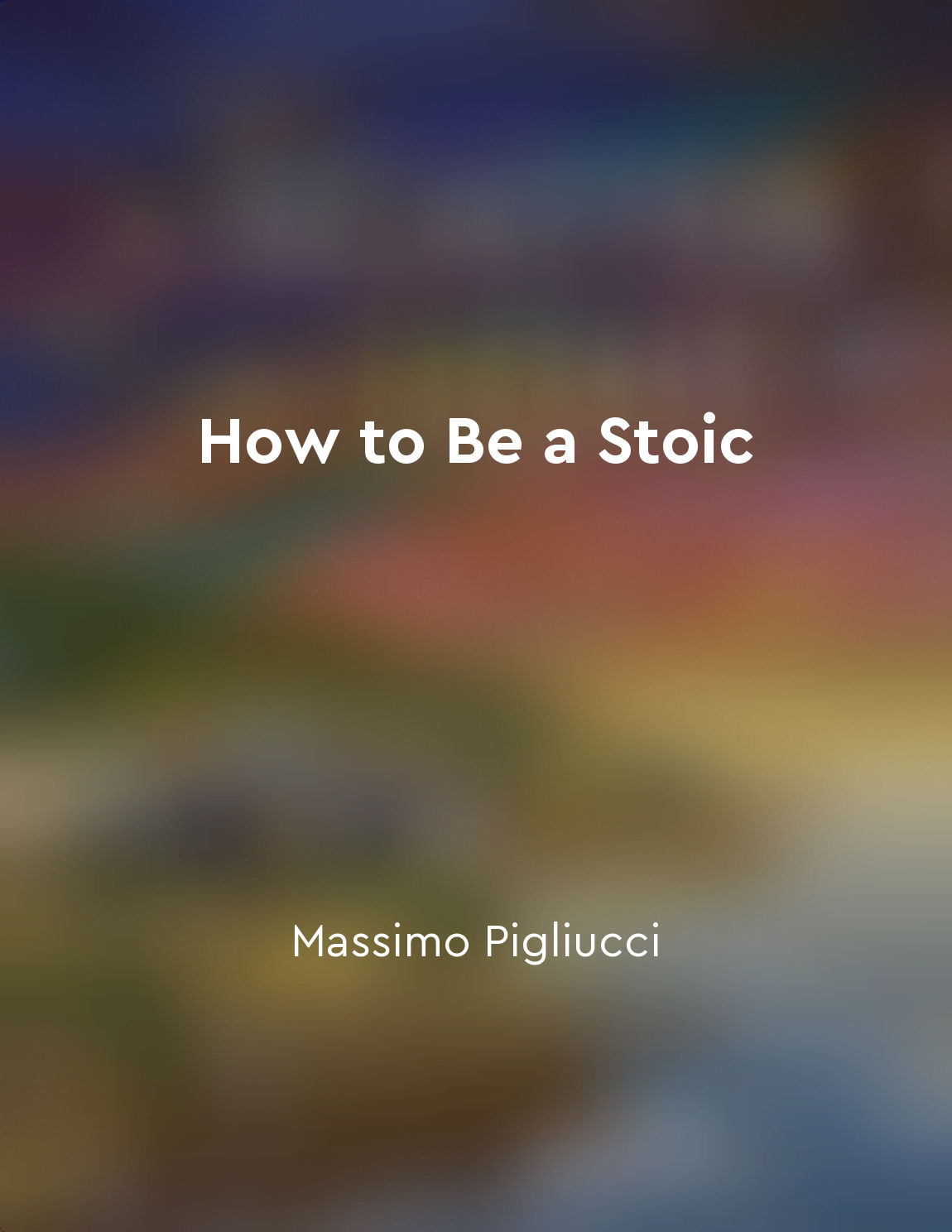Audio available in app
Practice selfdiscipline and moderation in all things from "summary" of The Daily Stoic by Ryan Holiday,Stephen Hanselman
The Stoics understood that self-discipline and moderation were crucial components of a virtuous life. They believed that by exercising self-control and avoiding excess in all things, one could achieve inner harmony and peace. This principle applied to every aspect of life, from physical pleasures to emotional reactions. By practicing self-discipline, individuals could train themselves to resist temptation and make rational decisions based on reason rather than impulse. This required a conscious effort to regulate one's desires and actions, ensuring that they were in alignment with one's values and goals. It was a constant battle against the pull of instant gratification and the allure of indulgence. Moderation was equally important in the Stoic philosophy. It meant finding a balance between extremes and avoiding the pitfalls of excess. Whether it was in eating, drinking, working, or socializing, moderation allowed for a more measured and sustainable approach to life. It prevented burnout, prevented wastefulness, and fostered a sense of control over one's circumstances. The Stoics believed that by practicing self-discipline and moderation, individuals could cultivate resilience and strength of character. They would be better equipped to face adversity and challenges, knowing that they had the inner resources to withstand them. It was a way of building up mental toughness and fortitude, preparing oneself for whatever life threw their way.- Self-discipline and moderation were not just virtues in themselves but tools for personal growth and development. They were the foundation upon which one could build a meaningful and fulfilling life, free from the shackles of excess and impulsivity. It required dedication, practice, and a willingness to confront one's weaknesses and limitations. But the rewards were immense - a life lived with purpose, integrity, and resilience.
Similar Posts

Practicing equanimity in the face of difficulties
Equanimity is a central concept in Stoic philosophy, which encourages individuals to maintain a sense of composure and tranquil...

Cultivate a sense of inner strength and fortitude
To cultivate a sense of inner strength and fortitude, one must first understand that the external world is outside of our contr...
Stoicism and romanticism find common ground in their approach to emotion
Stoicism and romanticism, despite their seemingly divergent philosophies, share a surprising commonality in their perspectives ...

Stoic philosophy offers practical tools for living a fulfilling life
Stoicism is a philosophy that provides individuals with practical guidance on how to live a meaningful and fulfilling life. By ...

External events should not disturb our inner peace
The Stoics believed that our inner peace should not be dependent on external events because they are often beyond our control. ...
Negative emotions can be harmful
Negative emotions are often viewed as natural and unavoidable aspects of human experience. However, the Stoics argue that these...
They also advocate for accepting what we cannot change
The Stoics believed that it is essential to recognize the limits of our control over external events. They stress the importanc...

Stoicism offers a practical roadmap to happiness and wellbeing
Stoicism provides a clear and straightforward path to achieving happiness and overall well-being in life. By following the prin...
Stoicism promoted the idea of living in accordance with one's own nature
The Stoics believed that human beings are rational animals capable of living in harmony with the natural world. They argued tha...
Strive for excellence in all that you do
The Stoics emphasize the importance of excellence in all aspects of life, believing that the pursuit of excellence is essential...

